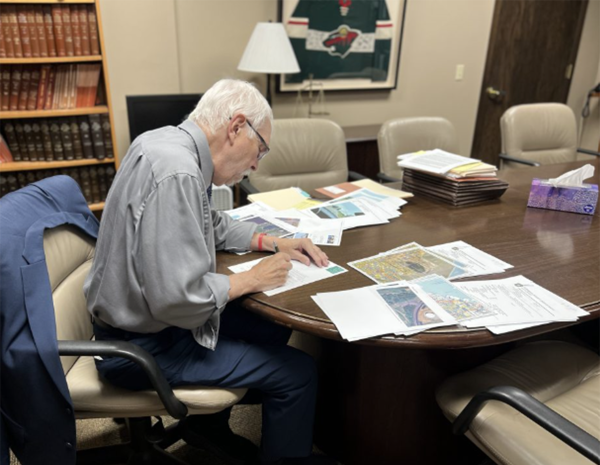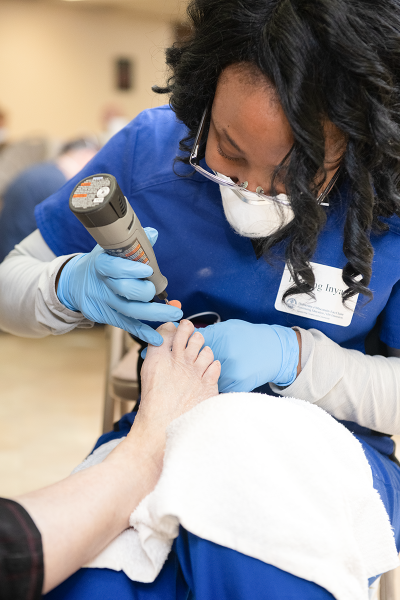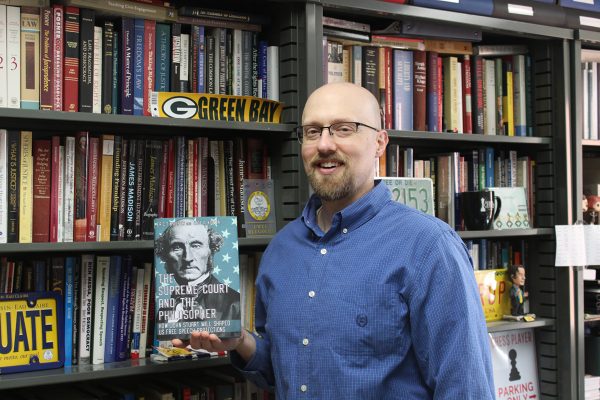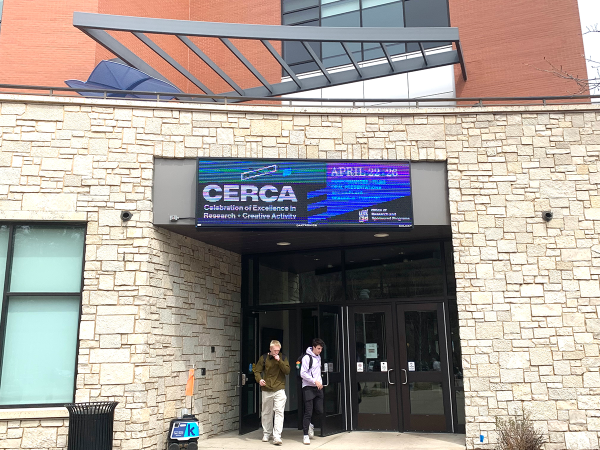Taming water and bottling sunlight
Senate pledges cash for river patrol gear; solar panel vote next week
March 13, 2014
Senate voted to pledge money for flashlights, radios and other gear toward a river safety patrol program that hasn’t secured funds to operate, at its meeting Monday.
The program, called River Watch, is a proposed expansion of University Police’s Student Patrol, who report illegal or dangerous activity on weekends after dark, Sergeant Jay Dobson of the University Police said.
“Equipment expansion is one thing,” Dobson said. “We’re just hurrying up and waiting until we get the green light on funding and can start training people.”
Dobson said although patrollers could use new flashlights, radios and uniforms, police won’t spend that money until the university finds funds to support training and patrol staff wages.
UW-Eau Claire’s Student Affairs Office started planning the patrol in the fall. But so far, it hasn’t been able to find departments on campus to fund the program, he said.
Senate moved $600 from its $7,000 travel fund to pay for River Watch gear. So far this year it has only spent about $650 from its travel fund and expects to spend no more than $800 extra by the end of the semester, according to the bill passed Monday.
The Center for Alcohol Studies and Education will pitch in the other half of the $1,200 startup costs. CASE director Peggy O’Halloran did not return phone messages by press time.
Campus police cover campus property, anything outside of that is Eau Claire city police jurisdiction.
Senator Christian Paese said moving money from the travel account into programs like River Watch is a good use of Senate’s static funds.
“If (the River Watch) saves one person from an accidental slip, it’s worth every penny,” he said.
Two Eau Claire students have died in the Chippewa river since 2011.
“We don’t have a crystal ball,” Dobson said. “Is it possible our contacts prevented a death? We don’t know that … Our student patrols have generated lots of contacts for us. They’ve been very effective.”
It’s a bird, it’s a plane
Look up at the south side of McIntyre Library next spring and you might see solar panels jutting from the roof.
Senate introduced a bill Monday to spend about $160,000 in student fees to mount solar panels on the sunniest side of McIntyre.
Student Office of Sustainability director Emy Marier said it will take 69 years for energy savings generated by the panels to equal the up-front cost of the project.
“Really it’s that piece of the symbolic nature of the panels and pursuing sustainable development,” Marier said. “More so, this project focuses on the environmental … and cultural aspect of having the solar panels visible.”
A similar Senate-approved solar panel plan passed last Spring fell through because the project didn’t follow state-mandated procedures.
Senate planned to install a string of solar panels along the “skirt” and “ballasted” on the roof of McIntyre after a solar energy audit last year laid out spaces on campus that could support renewable energy generators, Marier said.
State law requires Wisconsin State Department of Administration’s Division of Facilities Development, or DFD, approval before construction or additions to state-owned buildings like McIntyre Library.
Mike Traynor, director of Facilities Management on campus said a state consultant quashed the plan to put panels on McIntyre’s ballasted, which means Senate won’t be able to install as many panels as it planned to last year.
He said energy generated by the panels will be pumped back into Eau Claire’s electric grid and will offset energy costs.
Senate has to hire a state architect, consultant and pay DFD management fees for the project to continue, which adds about $30,000 to the total cost of the project.
“Once Senate approves (the bill), we send it to the DFD and they’ll likely approve the project,” he said.
Traynor said if Senate passes the bill next week and the DFD signs off, the university could begin bidding on contractors by next winter, and construction could be completed sometime next spring.









